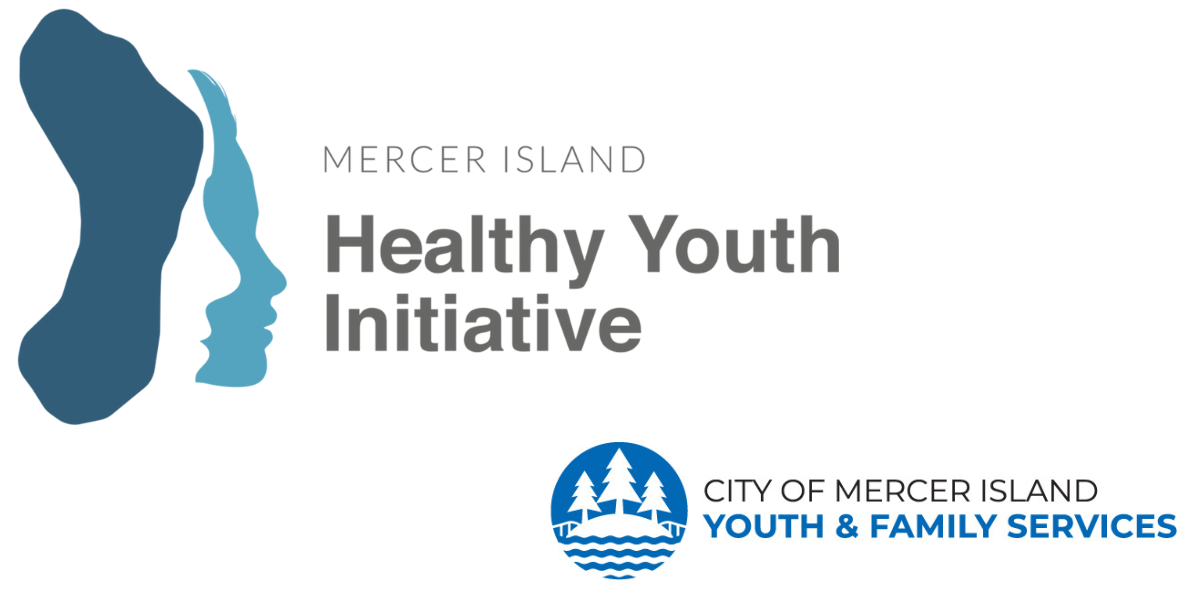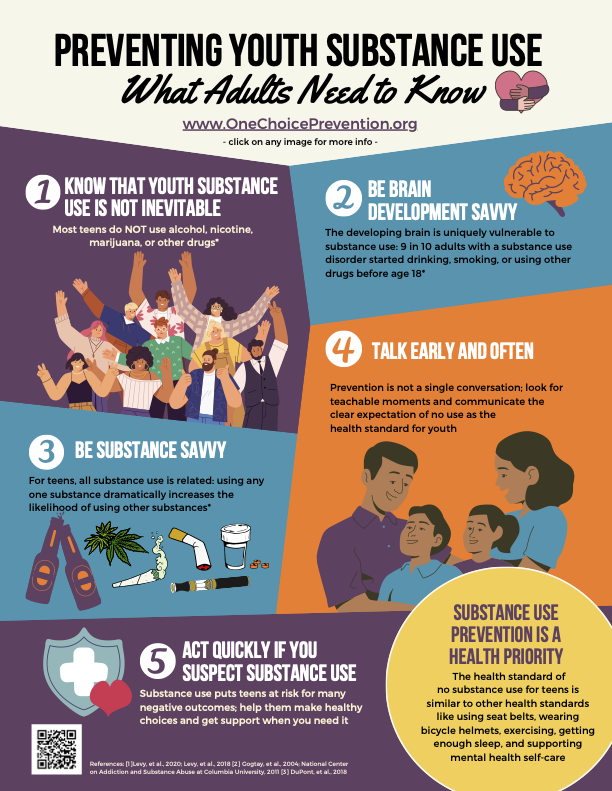Prevention Basics

Parents are the #1 Influence
Over 80 percent of young people ages 10–18 say their parents are the leading influence on their decision whether to drink.
Send a clear and strong message that you disapprove of underage drinking and misuse of other drugs.
Prevention Basics:
What Adults Need to Know
When it comes to youth drug prevention, parents make a difference.
Teens who believe that their parents will respond negatively/enforce predictable consequences to their substance use are less likely to use alcohol, nicotine, marijuana and other drugs.
While other factors, like peers who use drugs, can influence a teen’s decisions, parent expectations that there is NO drug use, significantly reduces teen drug use. It can be helpful to ask your teens to wait until they are 21 (legal) or 25 (based on brain science) to consider alcohol/drug use. > Learn about the brain science
Talk early and often to your children about drugs (including alcohol), making sure that they know that no drug use is acceptable. > Review Prevention Tips for Every Age
Pay attention to your own alcohol and other substance use; modeling is powerful. If you as a parent choose to use, model responsible behaviors such as not using to the point of intoxication, not driving after using substances, and hosting alcohol free parent parties.
Tips and Tools for
Parents & Caregivers
Prevention is Not a Single Conversation.
Start Early. Stay Strong. Be Secure.
It’s Never Too Late for Prevention.
Be a Reliable Source of Information and Facts.
Build Refusal Skills and Have a Plan. Teach your children skills to refuse alcohol and drugs while maintaining their friendships. Communicate to your children that they can call to request a ride from you if they attend an event where substances are present.
Avoid sharing personal stories of use/abuse; instead set “no use” limits based on medicine/science.
Host substance free events, check backpacks, be present/chaperone
The roots of prevention include enforcement of healthy family limits, reducing access and exposure to substances, and support healthy non-use social and family norms.
Actions for Parents
Source: Washington State Department of Social & Health Services & StartTalkingNow.org
Bond: Kids who feel close to their parents are less likely to use alcohol or marijuana. Stay actively involved in their lives, support their interests, eat dinner together and do fun family activities. Recognize them for making positive and healthy choices.
Set Boundaries: Set clear rules and expectations about no alcohol or marijuana use. Talk with your kids early and often about the importance of staying alcohol and drug free. Never give alcohol or marijuana to anyone under the age of 21. Role play situations where your child might be offered alcohol or other drugs, and practice ways to refuse them.
Monitor: Always know where your kids are, who they are with and what they will be doing Check with other parents to make sure they are home to supervise.
Lock up any alcohol, marijuana or prescription drugs at home.
Teach your kids about the ways substance use can harm their health and future plans. Kids who learn about the risks of drugs at home are less likely to use them (Partnership Attitude Tracking Study). Get tips for talking with kids at www.StartTalkingNow.org.
Take action if you think your teen is using alcohol or marijuana. Talk to your school-based MIYFS counselor or for confidential information and referrals to help call the Mercer Island Youth and Family Services confidential Intake Line at (206) 275-7657..
Example of what to say to 4th & 5th graders: “What do you know about marijuana? Do you know that marijuana can hurt your health? Marijuana use is against the law for anyone under 21 years old. We want you to do well in school, so we have a family rule against using drugs, including marijuana.”
Example of what to say to young teens: “Remember our family rule against using alcohol? Let’s talk about how you can refuse drugs, including alcohol, if offered to you.”

Lots of little talks are more effective than one "big talk."
Sitting down for the "big talk" about alcohol can be intimidating for both you and your child. Try using everyday opportunities to talk— in the car, during dinner, or while you and your child are watching TV. Having lots of little talks takes the pressure off trying to get all of the information out in one lengthy discussion, and your child will be less likely to tune you out.


